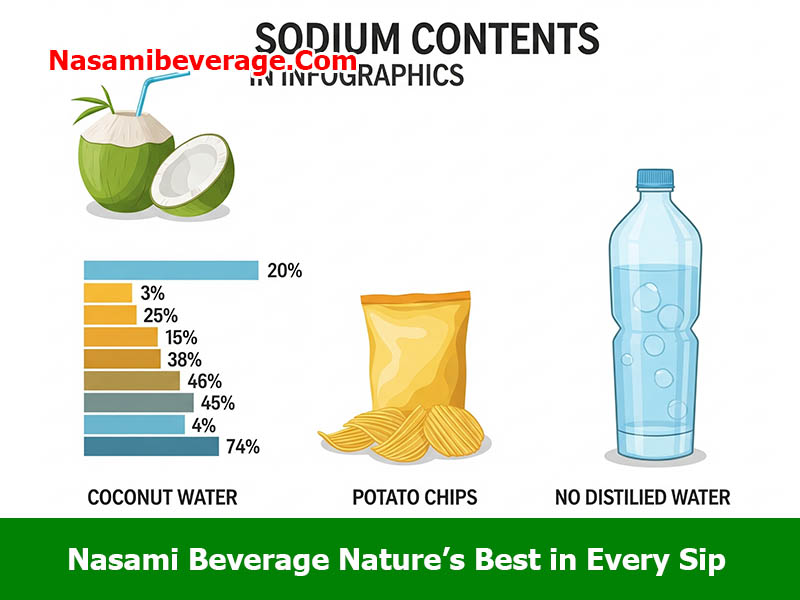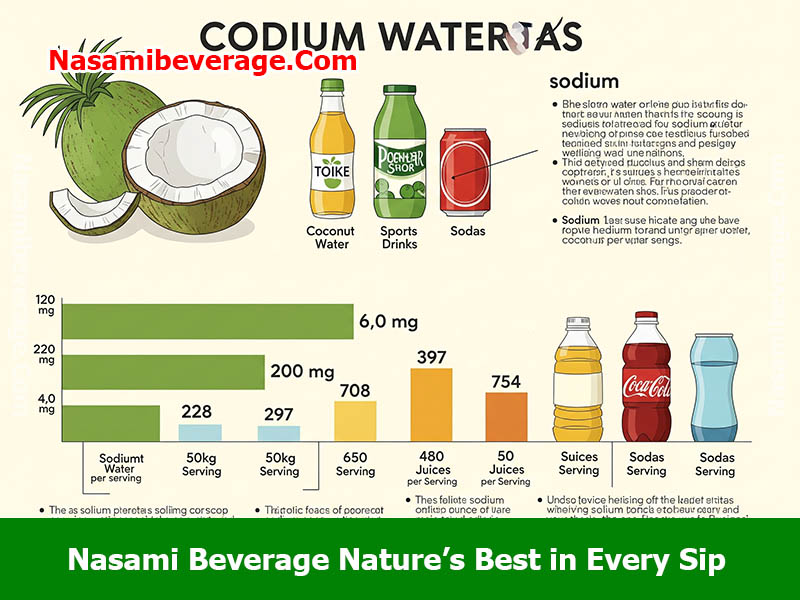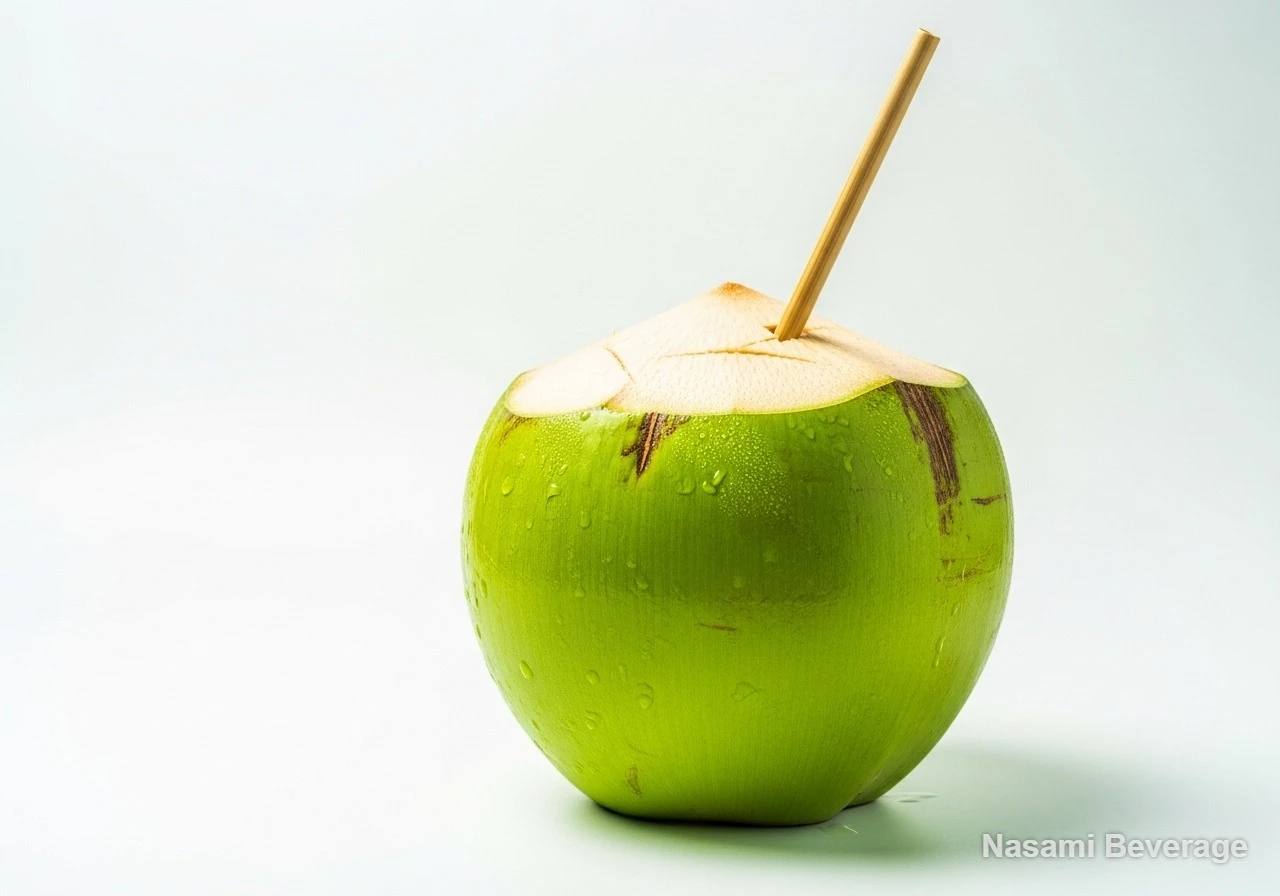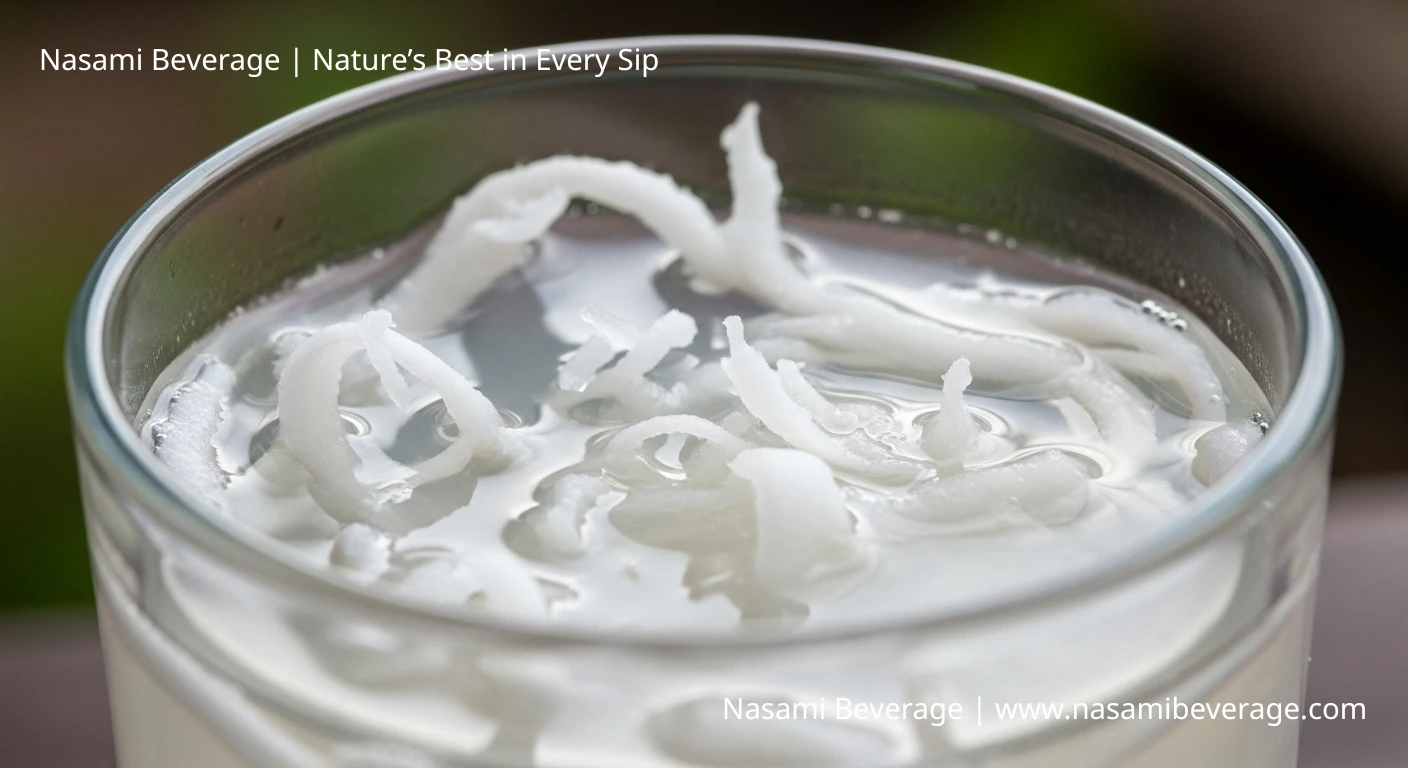Coconut water has surged in popularity across the US, UK, Canada, and beyond, often lauded as a natural, healthy hydration choice. But as health consciousness grows, so does scrutiny of what we consume, leading many to ask: is coconut water high in sodium? This question is particularly relevant for individuals monitoring their sodium intake for various health reasons. This article aims to provide a clear, evidence based answer, exploring the actual sodium content in coconut water, how it compares, and what it means for your dietary choices.
Is coconut water actually high in sodium? The straight answer
Let’s get directly to the point: generally, no, coconut water is not considered a high sodium beverage for most people. In fact, one of its notable characteristics is its relatively low sodium content, especially when compared to its high potassium levels. A typical 8 ounce or 240ml serving of unsweetened coconut water usually provides X mg of sodium, with figures often ranging from about 40mg to 60mg.
Some sources or specific brands might show amounts around 100mg to 130mg per serving. While an outlier figure of approximately 252mg per cup has been noted in some data, this is less common for plain, unsweetened coconut water and highlights the importance of checking product specific information.
This article will help in debunking myths about coconut water and high sodium content, providing clarity for consumers.

What affects sodium levels in coconut water & how it compares
While coconut water is generally low in sodium, it’s helpful to understand the factors that can influence its mineral content and how it stacks up against other beverages. The sodium content in coconut water varies by brand/source, making informed choices key.
Variability in sodium content
Several factors can affect the mineral composition of coconut water. The sodium levels in coconut water can be affected by coconut maturity; for instance, younger coconuts might have slightly different electrolyte profiles than more mature ones.
The geographical origin and soil conditions where the coconuts are grown can also play a role. Furthermore, there can be differences when you compare fresh coconut water, which may differ in sodium from packaged coconut water.
While fresh coconut water is in its natural state, packaged versions undergo processing, and though the focus here is natural sodium, it’s always wise to be aware of product preparation. Brand variations are also significant, as different companies might source their coconuts from various locations or have slightly different processing methods.
Reading the label: Your best guide
Given these potential variations, reading nutrition labels is important for determining coconut water sodium content, especially for packaged products. The nutrition facts panel will list the sodium per serving, as well as the defined serving size, which can sometimes be smaller than what one might typically consume.
Knowing how many calories in coconut water and its other nutrient details from the label helps build a complete picture. It is also useful to understand how can I tell if coconut water has gone bad to ensure product quality.
Coconut water sodium vs. other beverages
To put its sodium content into perspective, it’s useful to compare coconut water with other drinks. Its sodium level is less than many sports drinks, a topic often explored when looking at coconut water vs sports drinks.
Sports drinks are often formulated with higher sodium levels to help replenish electrolytes lost during intense exercise. Plain water, of course, contains virtually no sodium. Compared to some fruit juices or sugary sodas, unsweetened coconut water generally presents a better sodium profile.
Sodium in coconut water vs. daily recommendations
Understanding how coconut water’s sodium compared to daily sodium recommendations is crucial. Health authorities like the American Heart Association suggest aiming for less than 2,300 milligrams of sodium per day, with an ideal limit of less than 1,500 mg per day for most adults. A serving of coconut water providing, for example, 60mg of sodium, contributes only a small fraction to these daily limits, making it a suitable option for many.
Beyond sodium: Coconut water’s electrolyte balance (Potassium vs. Sodium)
The discussion about sodium in coconut water is incomplete without highlighting its broader electrolyte profile, particularly the impressive potassium content. Indeed, coconut water benefits from its mineral balance low Na, high K. There are many advantages of drinking coconut water linked to this unique composition.
The potassium powerhouse factor
A standout feature of coconut water is that it has a higher ratio of potassium to sodium. This high potassium content is significant because potassium plays a key role in maintaining fluid balance, nerve signals, and muscle contractions.
Moreover, potassium helps to counteract the effects of sodium on blood pressure by helping the body excrete excess sodium and by relaxing blood vessel walls. This favorable potassium to sodium ratio is one of the primary reasons coconut water is often linked to positive cardiovascular health aspects, which relates to the question of whether can coconut water lower blood pressure.
Other key electrolytes present
Beyond sodium and potassium, coconut water offers electrolytes including sodium, magnesium, and calcium. While present in smaller amounts compared to potassium, these minerals further contribute to its hydrating properties and overall nutritional value.
How these minerals contribute to hydration
The electrolytes in coconut water, including its modest amount of sodium, play a role in effective hydration. Sodium in coconut water plays a role in hydration by helping the body retain fluid. This, combined with its water content and other electrolytes, makes it a refreshing and natural way to rehydrate, particularly after light to moderate activity.
Sodium in coconut water: Considerations for your diet and health
While generally a healthy choice, there are specific considerations regarding the sodium in coconut water for certain individuals. Understanding sodium in natural drinks like coconut water is key for health management.
For the average healthy person
For most healthy individuals, the sodium content in coconut water is not a cause for concern. Most people can safely consume sodium in coconut water as part of a balanced and varied diet. Its natural electrolytes can be beneficial.
Individuals on low sodium diets
For those on medically prescribed low sodium diets, such as for managing certain heart conditions or kidney disease, awareness is key. While low in sodium, it is not entirely sodium free. Therefore, individuals on low sodium diets should monitor coconut water intake and factor it into their daily sodium allowance.

Consulting with a doctor or a registered dietitian is always recommended to ensure it fits within their specific dietary restrictions.
Considerations for kidney health
Individuals with kidney disease face unique dietary challenges. Kidney disease patients need caution with electrolytes in coconut water, not just sodium but particularly its high potassium content. Impaired kidneys may not be able to process large amounts of potassium or fluid effectively, so consumption should be discussed with their healthcare provider.
Impact on blood pressure
Interestingly, the impact of coconut water sodium on blood pressure is generally minimal or even positive due to potassium. The high potassium to sodium ratio is often associated with helping to manage blood pressure. However, this doesn’t mean it’s a treatment, and individuals with hypertension should follow their doctor’s overall dietary and medical advice.
Moderation is key
As with any food or beverage, moderation is important. While coconut water offers many benefits, excessive intake of any beverage can contribute to overall sodium load, however small. It’s best enjoyed as part of a diverse diet.
Frequently asked questions about sodium in coconut water
So, is coconut water a low sodium drink?
Yes, generally coconut water is considered a low sodium beverage, containing significantly less sodium than many other drinks, especially sports drinks.
How much sodium is too much from coconut water?
This is relative to your individual daily sodium targets and overall diet. A single serving (around 8oz/240ml) with 40 to 100mg of sodium is fine for most. If you are on a strict low sodium diet, you’ll need to account for this amount.
Can I drink coconut water if I have high blood pressure?
For many people with high blood pressure, coconut water can be a good choice due to its high potassium and low sodium content, which can be beneficial. However, it’s crucial to discuss this with your doctor, especially if you’re on medication or have other health conditions.
Does fresh coconut water have less sodium than packaged?
The sodium content can vary in both. Fresh coconut water is in its natural state, while packaged versions should be checked via their nutrition labels. Some packaged products might have very similar sodium levels to fresh, while others could differ slightly.
Is there more potassium or sodium in coconut water?
Coconut water contains significantly more potassium than sodium, which is one of its key nutritional benefits.
The answer to “is coconut water high in sodium?” is generally no. It is typically a low sodium beverage, particularly notable for its high potassium content, offering a favorable electrolyte balance for most people. For those choosing packaged varieties, reading the nutrition label is the best way to understand the specific sodium content.
Coconut water can be a refreshing, hydrating, and nutritious addition to a well rounded diet for many individuals in the US, UK, Canada, and elsewhere. However, those with specific health conditions, such as severe kidney disease or those on strictly controlled low sodium diets, should consult their healthcare provider to determine if and how coconut water fits into their individual health plan.
Ultimately, it stands out as a natural beverage option that, for the average person, offers more benefits than concerns regarding its sodium levels. For further information on healthy beverage choices, you can explore resources like Nasami Beverage.



